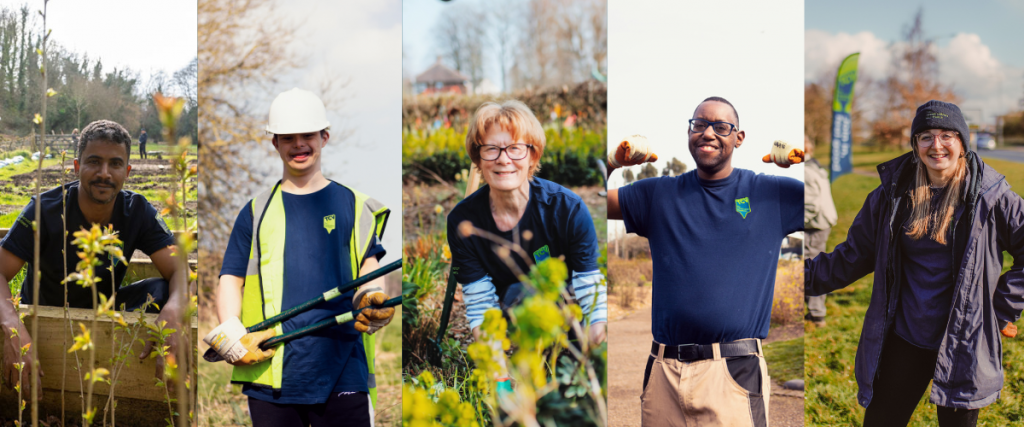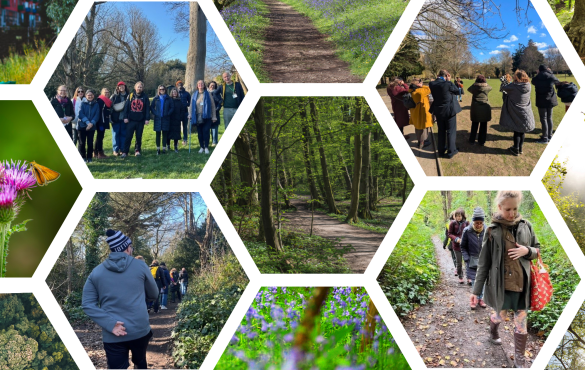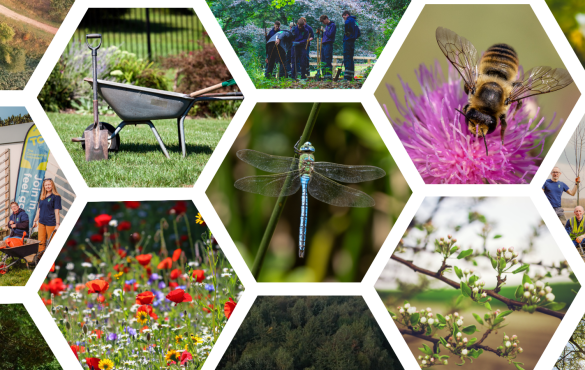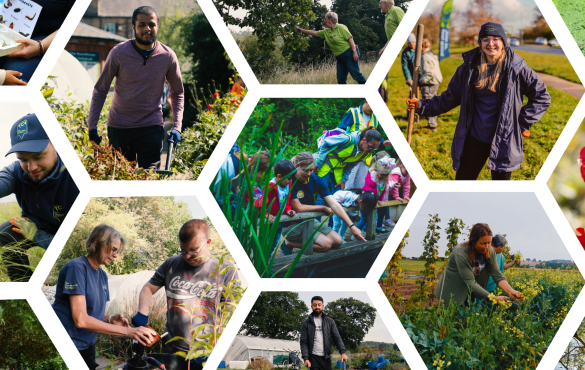Written by Paul Sherriff, TCV Health & Safety Manager
It’s been a year since I completed TCV’s WildSkills Traineeship at Stave Hill Ecology Park in south London – alongside two other London trainees. When we wrote our first WildSkills blog in spring 2021, I wrote of a career goal to be part of “more ambitious and connected ecosystem recovery across the UK”. Two years later, the skills developed at TCV have given me a grounding for my subsequent work at Defra and study at the University of Cambridge.
Before I joined the traineeship, I worked in policy development at HM Treasury, had volunteered in local nature reserves, and had trained in horticulture, with a focus on nature-positive gardening. So I had experience both working at the bigger-picture policy level, and getting stuck in on the ground. What was missing was direct nature conservation experience – and the 12-month long WildSkills Traineeship helped fill that gap.
The Traineeship was designed to improve our practical conservation skills; learn more about engaging local communities; and increase our knowledge of UK biodiversity. In London, we were led by natural historian and Project Officer Joe Beale, and I was stationed in Stave Hill Ecology Park in Rotherhithe, south London. Stave Hill is a 5-acre nature reserve with a mosaic of woodland, meadows and ponds, and is managed by Rebekah Clark and her teams of local and corporate volunteers.
Learning from community groups in urban reserves
Being on the ground in nature for a year teaches you a thing or two about the local flora and fauna. We learnt about managing small, urban spaces where – without large herbivores or nature corridors – the key to encouraging natural processes was joining forces with what is abundant in cities: people.
Some of our engagement was straightforward – local people and corporations volunteered to support the park, by collecting biodiversity data or scything the meadows.
Sometimes there were challenges in getting our messages across. Stave Hill had welcomed many new visitors to the reserve during the pandemic – a great step in reaching different parts of the community. The downsides to an increase in traffic included increased trampling and dogs off-piste. Our response was a poster campaign to illustrate to new visitors the ecological importance of untrampled meadows for overwintering pupae, or of leashed dogs for nesting birds.
Instead of enforcing strict park by-laws, we found an educational approach towards the community we were part of much more effective.
Applying WildSkills in policy and academia
Since finishing the Traineeship, I joined Defra’s policy team for Biodiversity in the UK Overseas Territories (UKOTs). The UKOTs have unique natural environments, with 94% of the wider UK’s endemic species. The UK Government has in recent years trebled its environmental funding for UKOTs through its fund Darwin Plus, and is working with the UKOTs to develop a new joint Overseas Territories Biodiversity Strategy (OTBDS).
Alongside our brilliant policy team, leading on Darwin Plus and developing a new OTBDS is a huge privilege. Crucially, my time with TCV gave me a strong conservation and ecological understanding, which has been a strength in improving the Darwin Plus programme and in laying the foundations for more ambition in protecting the UKOTs’ unique environments.
Now, while I continue my work with Defra part-time, I’m pursuing a Masters in Conservation Leadership at the University of Cambridge. The course focuses on developing leadership and management skills to create positive change for nature. It’s been an incredible opportunity to learn from conservation CEOs, academics and practitioners, and to study alongside 22 conservationists from across the world. Despite the focus on leadership, I’m constantly reminded in the classroom that it’s in local community-based green spaces like TCV’s that we can enhance nature.
The future
One year on and I am so grateful for the traineeship at TCV. For others considering a career in conservation, I can’t recommend it enough. It has laid the foundations that, along with the leadership experience gained at Cambridge, will help fulfil that interest in more ambitious and connected ecosystem recovery not just in the UK, but across the world.
Through the work of TCV, people improve their confidence, skills and prospects, through learning inspired by the outdoors. Find out more: https://www.tcv.org.uk/learning/
__________________________

Keep up to date with the latest news and activities from The Conservation Volunteers by following us on Twitter, Facebook, LinkedIn and Instagram. You can also sign up to receive our Greenzine newsletter for more ways to get involved.




